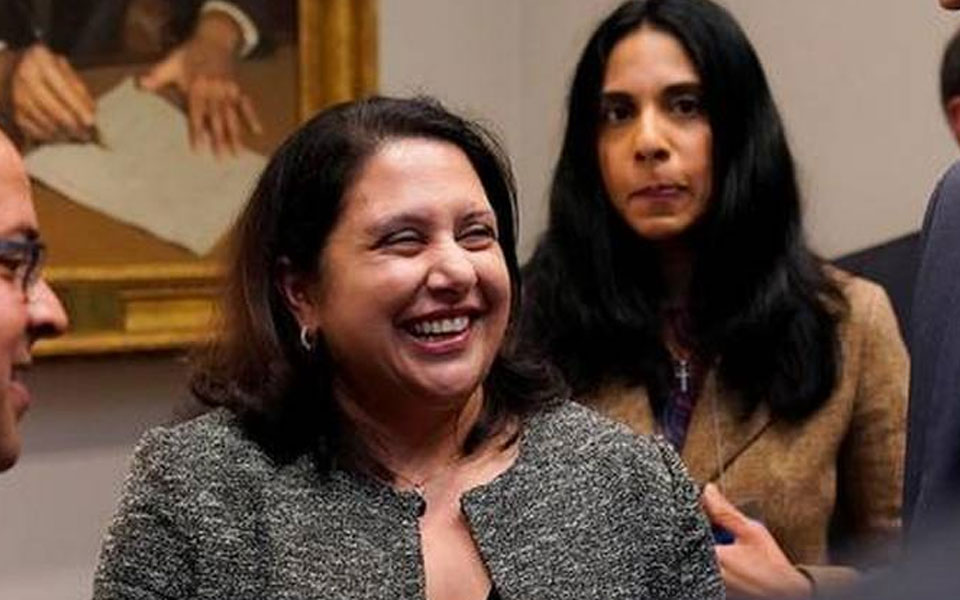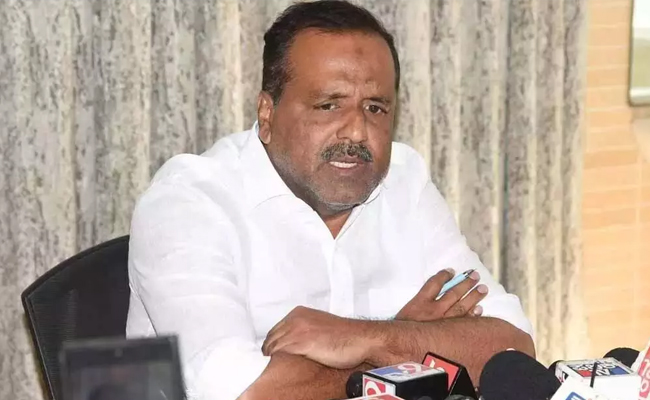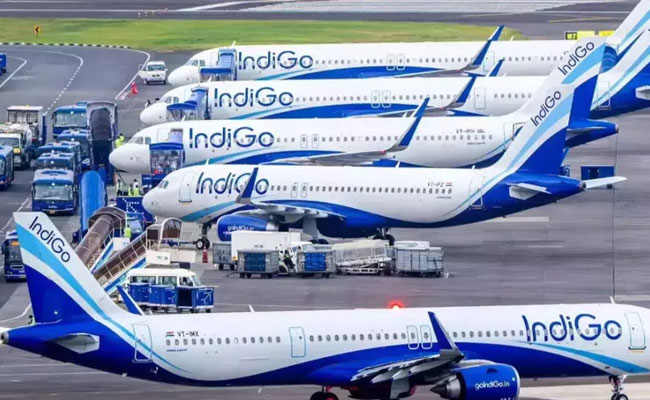Washington, Nov 14: Prominent Indian-American lawyer Neomi Rao has been nominated by US President Donald Trump to fill Justice Brett Kavanaugh's seat on the powerful DC Circuit Court of Appeals.
Trump during Diwali celebrations on Tuesday at the historic Roosevelt Room of the White House announced the nomination of the 45-year-old regulatory czar for the DC Circuit which is considered next to the US Supreme Court.
And, if confirmed by the Senate, Rao, who is currently administrator, Office of Information and Regulatory Affairs (OIRA), would be the second Indian-American judge in this powerful court after judge Sree Srinivasan, who was appointed during the previous Obama regime.
"She is going to be fantastic. Great person," Trump said on his nominee.
Rao would fill the seat vacated by Supreme Court Justice Kavanaugh, who served on the appeals court for 12 years. A formal announcement on her nomination is expected to be made by the White House on Wednesday.
"I just nominated Rao to be on the DC circuit court of appeals, the seat of justice Brett Kavanaugh. That could be a big story," Trump announced.
Rao thanked the president for the "confidence" he has shown in her by nominating her to the powerful US court. Trump made the announcement in the presence of his top Indian-American officials and Indian Ambassador to the US Navtej Singh Sarna.
Called the 'regulatory czar' of Trump administration in her current capacity, she oversees implementation of the administration's deregulatory agenda and regulation-related executive orders.
She was confirmed by the Senate with a 54-41 vote in July 2017 to head the OIRA and is known among legal circles as a highly respected administrative law scholar who has distinguished herself for her right-of-centre views, media reports stated.
A former clerk for conservative Supreme Court Justice Clarence Thomas, Rao was recommended for the post by former White House counsel Don McGahn. Trump's nomination of Rao is in recognition of her contribution in cutting down regulations.
Rao has previously served in all three branches of the federal government, and before taking on her current role in the executive branch, she was associate counsel and special assistant to the president for the George W Bush administration.
She has been known for promoting separation of powers in the three branches of government. Prior to joining the Trump administration in July 2017.
A graduate of Yale University and the University of Chicago Law School, Rao also worked in the private sector, in the international arbitration group of the London-based law firm, Clifford Chance LLP.
Born to Zerin Rao and Jehangir Narioshang Rao, both Parsi physicians from India, Rao grew up in Michigan and did her schooling from Detroit High School. She is married to Alan Lefkowitz and the couple has two children.
Kavanaugh has been embroiled in a bitter battle to stave off claims of sexual assault, which he denies.
Let the Truth be known. If you read VB and like VB, please be a VB Supporter and Help us deliver the Truth to one and all.
Mangaluru (Karnataka) (PTI): Karnataka Legislative Assembly Speaker U T Khader on Wednesday sought an inquiry after a large number of Aadhaar cards were found on the banks of the Nethravathi River here.
The cards were found at Farangipete in Pudu village of his Mangaluru Assembly constituency.
Khader, in a note to the Project Manager of the Unique Identification Authority of India (UIDAI), Bengaluru, sought immediate intervention and necessary action against those responsible.
In the note dated March 4, he said that local residents noticed the Aadhaar cards along the riverbank on March 3.
Following information received from the public, the Pudu Gram Panchayat president and villagers collected the Aadhaar cards found scattered in the area. They subsequently brought the matter to his attention and the concerned authorities, he said.
Expressing concern over the incident, the Speaker has directed that a thorough investigation be conducted to ascertain how such a large number of Aadhaar cards ended up on the riverbank and to identify those responsible.
He instructed officials to initiate appropriate legal action through the concerned department at the earliest.





